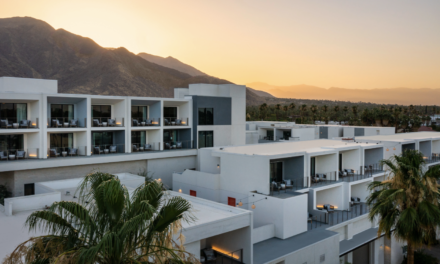
The Role of Content Marketing in Driving Bookings for Hotels and Resorts

In 2023, the worldwide hospitality industry surpassed $4.7 trillion, highlighting its substantial economic influence and the level of competition present. With such fierce rivalry, content marketing is essential for hotels and resorts that aim to differentiate themselves and boost bookings.
This marketing approach focuses on creating and sharing valuable content to attract and retain a targeted audience, ultimately driving profitable actions. For hotels looking to differentiate themselves and capture a larger market share, excelling in content marketing is now essential.

Understanding the Target Audience
Effective content marketing starts with really knowing who your audience is. Hotels and resorts should create detailed profiles of their typical guests. This means looking at data to grasp what guests like, how they act, and who they are.
With this knowledge, properties can customize their content to meet the specific wants and needs of various groups, whether it’s families planning vacations or business travelers needing suitable meeting spaces.
Collaborating With a Specialized Marketing Agency
For hotels or resorts, one of the first moves to make is to team up with a hotel marketing agency that focuses on content and public relations. This partnership can greatly enhance a property’s visibility and reputation. An agency with this expertise knows how to tell engaging stories that showcase what makes a hotel unique while also shaping how the public views it through smart communication strategies.
This approach boosts exposure across various platforms and builds credibility in a crowded market. Agencies also offer creative ideas and powerful analytics tools, allowing hotels to run effective campaigns that connect with different audiences. Plus, their knowledge of industry trends helps properties stay ahead by anticipating changes in traveler habits and preferences.
Leveraging Different Content Formats
Diversifying the types of content is crucial to engaging potential guests throughout their decision-making process. Hotels can cater to various preferences by offering a mix of blog posts, videos, newsletters, and dynamic social media content.
Videos that showcase the property, informative blog posts about local sites, and newsletters with special deals all contribute to a compelling narrative that attracts prospective guests. Interactive elements like quizzes or virtual tours can increase engagement and provide a preview of the guest experience. This approach keeps interest high and encourages sharing, which broadens reach significantly.
SEO Optimization for Greater Visibility
Search engine optimization is essential for maximizing the visibility of compelling content. Hotels focusing on SEO can ensure their details are prominent in search results when people search for accommodations. This involves using targeted keywords, optimizing web content for search engines, and enhancing site usability.
Implementing local SEO strategies can attract more visitors from surrounding areas, which is particularly beneficial for hotels near major landmarks or events. Regularly updating content keeps a site visible and highly ranked by search engines.
Utilizing Social Media to Amplify Reach
Using social media is a top strategy for hotels to distribute their content and engage with future guests. It’s vital for hotels to keep their social media profiles lively and interesting by presenting their distinct characteristics and values. Frequent updates, interactive polls, and live sessions can help keep the audience engaged.
These platforms also allow guests to share their experiences, acting as powerful recommendations that can encourage others to book a stay. By using popular hashtags and joining trending challenges, hotels can take advantage of viral marketing. Engaging in real-time conversations on platforms like TikTok and Instagram helps create a more relatable brand image, fostering stronger ties with future visitors.
Measuring Success and Adjusting Strategies
For content marketing to be effective, it’s essential to evaluate performance and refine approaches as necessary. Hotels should regularly check analytics to monitor engagement, website visits, and, most importantly, booking rates. This information reveals which types of content resonate best and which channels effectively convert interest into actual bookings.
By consistently updating their content marketing strategies based on reliable data, hotels can enhance their efforts for better outcomes. They can also try A/B testing with different content and marketing messages to sharpen their tactics. Directly engaging with guests through surveys and feedback forms can offer valuable insights, helping to improve the content strategy continuously.
Showcasing Guest Experiences Through User-Generated Content
Incorporating user-generated content into your strategy can greatly boost credibility and create authentic engagement with potential guests. Travelers trust other travelers. By encouraging guests to share their experiences through photos, videos, and reviews, hotels can leverage the power of social proof. Reposting UGC on your social media channels or website gives prospective guests a genuine feel of what they can expect.
Hotels can even run campaigns where guests are incentivized to share their stories. By promoting real experiences from real people, hotels build a sense of community around their brand, showing future guests that they, too, can enjoy memorable experiences at the property. This organic content often resonates more than professionally produced ads.
Highlighting Local Attractions and Partnerships
Hotels and resorts can use content marketing to position themselves as more than just a place to stay but as a gateway to local experiences. By creating blog posts or downloadable guides that feature top attractions and hidden gems nearby, they can highlight how guests’ stays can extend into the broader local area, enticing new bookings.
Moreover, by collaborating with local restaurants, tour companies, or transportation services, hotels and resorts can provide prospective guests with special deals or packages that include dining, spa treatments, or excursions. A win-win that also supports local businesses!
Final Thoughts
Hotels and resorts have a solid shot at boosting their bookings and amplifying their brand vibe through smart content marketing. Teaming up with pro agencies, really getting who their guests are, mixing up the types of content, and nailing the digital channel game allows them to craft compelling tales that hook future visitors.
Keeping an eye on how things are going and tweaking tactics as needed is key to coming out on top in the cutthroat world of hospitality. Hotels and resorts that go all in on content marketing can see real growth and a hefty payoff from their efforts.
Feature photo courtesy of Pexels




































